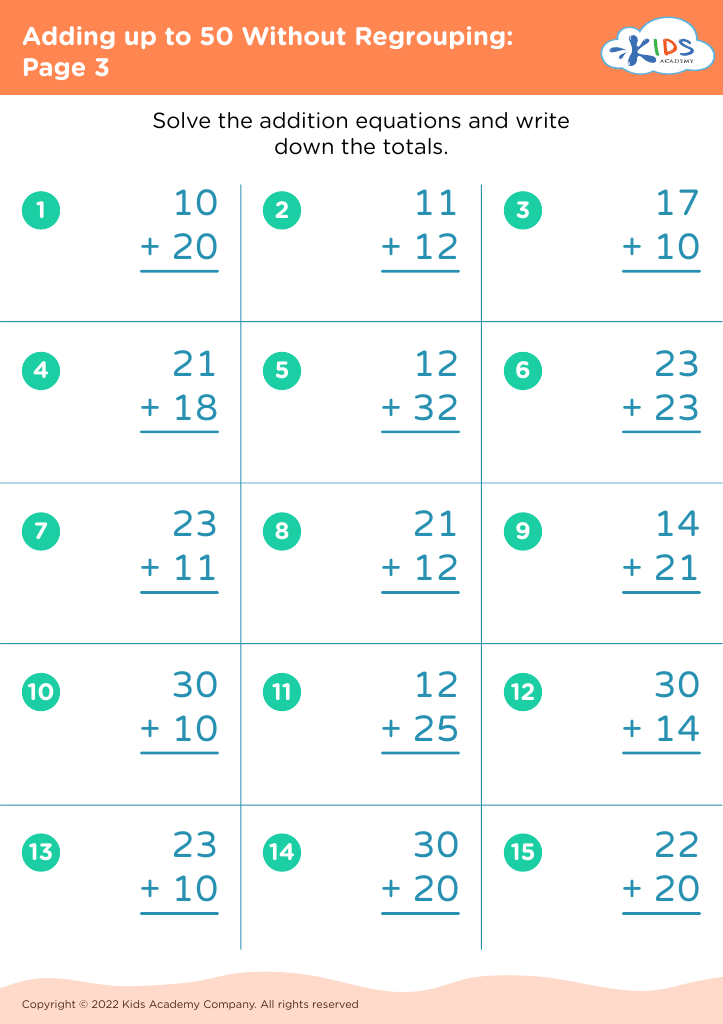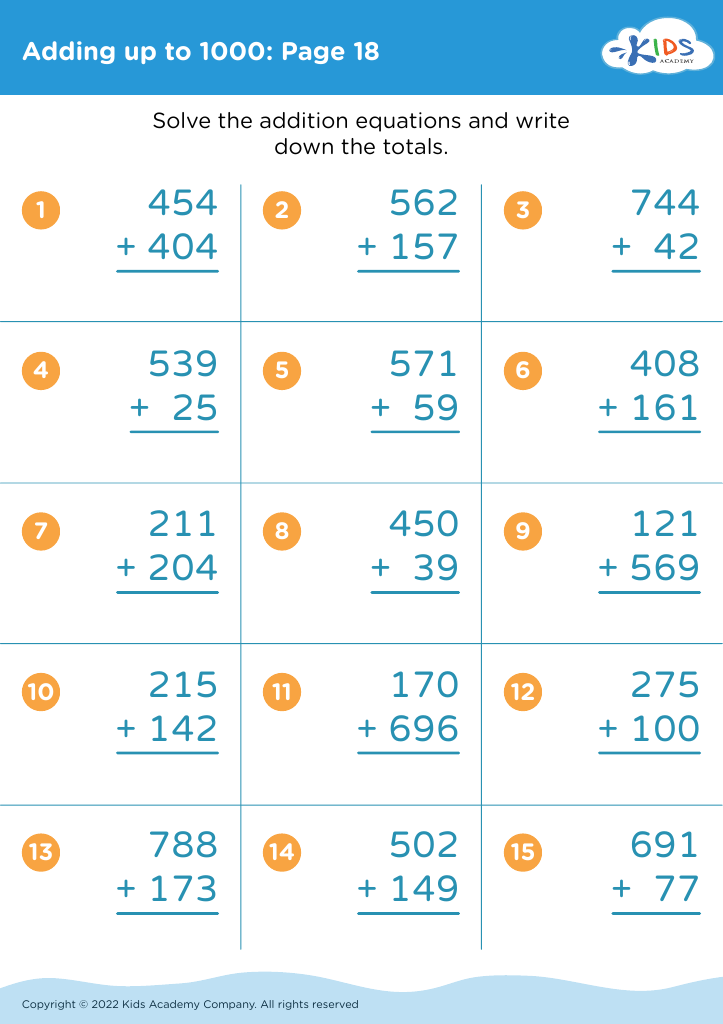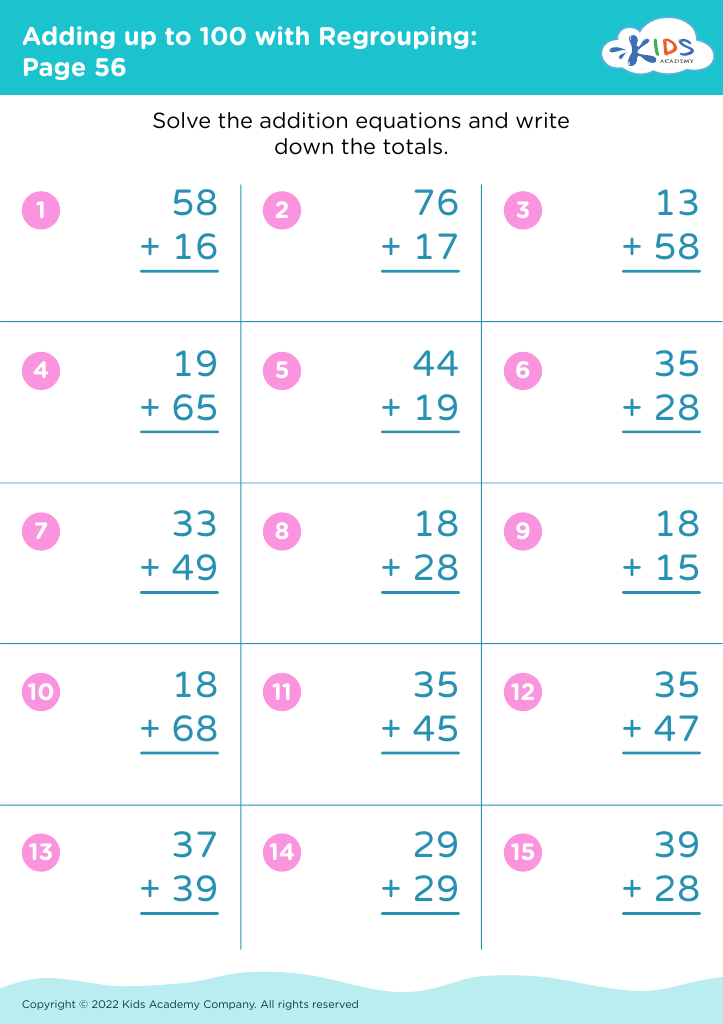Drawing skills Addition & Subtraction Worksheets for Ages 6-8
6 filtered results
-
From - To
Enhance your child's math journey with our engaging Drawing Skills Addition & Subtraction Worksheets designed for ages 6 to 8! These interactive worksheets combine artistic expression with essential math concepts, allowing young learners to visualize addition and subtraction problems through creative drawings. With vibrant illustrations and clear instructions, children can seamlessly connect math with art, promoting critical thinking and problem-solving skills. Perfect for at-home practice or classroom activities, these worksheets encourage independent learning while making math enjoyable. Explore our collection today and watch your child's confidence soar as they improve their math skills while having fun with drawing!
Drawing skills play a crucial role in the development of addition and subtraction abilities for children aged 6-8. At this stage, when children are transitioning from conceptualizing numbers to performing calculations, visual representation helps solidify their understanding of mathematical concepts. When children draw groups of objects to represent addition or subtraction problems, they can better grasp the relationship between numbers and their quantities. This foundational skill enhances critical thinking, problem-solving, and spatial reasoning.
Additionally, the act of drawing engages children kinesthetically; it turns abstract math into a tangible and relatable activity. By visualizing problems, children are more likely to simplify complex calculations and find solutions collaboratively when they share their drawings with peers or teachers.
Parents and teachers should care about fostering these drawing skills because they help instill confidence in young learners, making them more enthusiastic and willing to tackle mathematical challenges. Moreover, early proficiency in these skills can lay the groundwork for more advanced mathematics later on, boosting overall academic success. Investing time in developing drawing-based calculation strategies cultivates a positive learning environment and fosters a love for math that can last a lifetime.


























